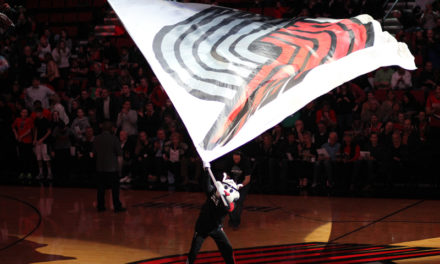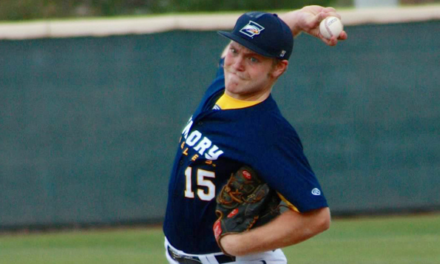When the NASCAR Monster Energy Cup Series took to the high banking of Atlanta Motor Speedway on Feb. 24, the piercing roar of stock car engines was noticeably fainter than in years past. The sport had quietly entered a new era.
Last October, NASCAR executives announced that Atlanta’s Folds of Honor QuikTrip 500 would be the first race to implement the new 2019 rules package. NASCAR intended for the changes to improve the sport’s racing product by bringing cars closer together on-track. The changes reduced engine horsepower from 750 to 550 and increased downforce by raising the spoiler height over five inches, both of which should have kept races tighter.
The results of the changes were inconclusive. On Sunday, the at-the-track experience was not much different other than the volume. Seats were still tightly packed with raucous fans, food stands were still selling greasy food for fans to force down with overpriced drinks and the air was still heavy with burnt rubber. The racing was competitive, even if it wasn’t much closer than last year’s race, as the lead changed hands 25 times.
While Stewart-Haas driver Aric Almirola started the race from the pole, he only managed an eighth-place finish. Chip Ganassi driver Kyle Larson led the most laps and won the first stage, but a penalty for speeding on pit road shuffled him back in the pack. Larson finished the race in 12th. Team Penske driver Joey Logano took the lead late in the race, but he was forced to give it up and come to pit road after suffering from a loose wheel. His teammate, Brad Keselowski, took the lead with 33 laps remaining and held on to finish first.
But the rule modifications were just an afterthought in Victory Lane. Keselowski spent more time talking about the illness that had forced him out of the car earlier that week.
“[I was] good enough to get the job done,” Keselowski told Fox Sports. At the end of his post-race interview, he still told the network that he was excited for his team since it was the “first race with the new rules or whatever they’re called now.”
The rule changes did not yield tighter racing in Atlanta, and the track’s abnormally worn-out racing surface kept cars apart. Considering the amount of effort required to keep from sliding across the asphalt, tightly packed racing would yield more risk than most drivers are willing to stomach.
Atlanta Motor Speedway was last repaved in 1997, making it one of the oldest racing surfaces on the NASCAR schedule. It has survived long enough to see three generations of Earnhardts and two generations of Elliotts take to its 24-degree banked turns, along with a 2005 tornado. Atlanta’s racing surface’s age has made the track subject to annual controversy over when it should be repaved, but last weekend’s racing product shows that there’s no need.
While the rule changes have gotten off to a slow start, they are an important step for the sport. Television ratings have slumped and tracks have removed grandstand seats because of insufficient demand. NASCAR has pursued numerous other changes before this year’s new regulations, but none affected cars’ on-track competitiveness. If the package can spur more frequent pack racing and more week-to-week variability as predicted, last Sunday’s race could mark the beginning of a NASCAR renaissance.
Unfortunately, fans will have to wait to know for sure.
Next weekend, NASCAR drivers will take on Las Vegas Motor Speedway’s smoother and younger racing surface. The questions left unanswered by the rule package’s Atlanta debut are sure to be addressed, and fans will see if the sport’s grand experiment to increase competition will work out.
Isaiah Sirois (19C) is from Naples, Fla., majoring in history. He previously served as the Wheel’s managing editor, and the Wheel’s Editorial Board won an SPJ Mark of Excellence Award during his term. He also works on the Wheel’s award-winning crossword team. Outside of the Wheel, he writes and edits for FantasyPros and works for the Atlanta Urban Debate League. He is also a Franklin Junto Fellow in the Program in Democracy and Citizenship and he serves on the executive board of Phi Alpha Theta. Sirois is an avid NASCAR fan and he will be a Team Penske supporter until the end of time.






